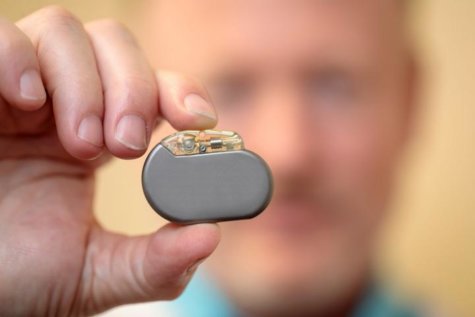ST. LOUIS — Clinical depression directly impacts 14 million Americans, many of whom do not get the desired results from medications or other traditional treatments. New research shows that vagus nerve stimulation could be a life-changer for people battling the mental health condition.
Researchers at Washington University School of Medicine say treating depression should be about more than just reducing the symptoms. It should be about overall quality of life.
“When evaluating patients with treatment-resistant depression, we need to focus more on their overall well-being,” says lead author Charles R. Conway, a psychiatry professor with the university, in a release. “A lot of patients are on as many as three, four or five antidepressant medications, and they are just barely getting by. But when you add a vagus nerve stimulator, it really can make a big difference in people’s everyday lives.”

A vagus nerve stimulator (VNS) is a device surgically implanted under the skin in the neck and chest. It emits regular, mild electrical pulses to the brain through the vagus nerve, which runs from the brain through the neck and chest, eventually reaching the colon. Approved by the FDA in 1997 for patients with drug-resistant epilepsy, these devices came with an unexpected side effect. Epilepsy patients who also had depression were finding fast relief from their depression symptoms with a VNS.
While the FDA approved VNS in 2005 for treatment-resistant depression, this is the first study to demonstrate the impact on quality of life.
Study participants were patients with depression that was not eased by four or more antidepressants, whether the medications were taken alone or in combination. One group of 328 patients had VNS in addition to the usual treatments. The second group of 271 patients received treatment as usual but did not have a VNS.
Researchers checked 14 quality-of-life categories, including family relationships, social relationships, mood, ability to work, physical health, leisure activities and overall well-being. They found that when nerve stimulation was added to the treatment plan, many of the depressed patients reported an overall improvement in quality of life, even though some symptoms of depression remained.
“On about 10 of the 14 measures, those with vagus nerve stimulators did better,” says Conway. “For a person to be considered to have responded to a depression therapy, he or she needs to experience a 50 percent decline in his or her standard depression score. But we noticed, anecdotally, that some patients with stimulators reported they were feeling much better even though their scores were only dropping 34 to 40 percent.”
Study participant Charles Donovan says antidepressants did not help, but VNS turned his life around. “Slowly but surely, my mood brightened,” he recalls. “I went from being basically catatonic to feeling little or no depression.”
Donovan, who has had his stimulator for 17 years, adds, “I still get sad when bad things happen—like deaths, recessions, job loss—so it doesn’t make you bulletproof from life’s normal ups and downs, but for me, vagus nerve stimulation has been a game-changer.”
Researchers think the stimulator helps patients concentrate, and this is what improves their quality of life.
“It improves alertness, and that can reduce anxiety,” says Conway. “And when a person feels more alert and more energetic and has a better capacity to carry out a daily routine, anxiety and depression levels decline.”
The findings were published online August 21, 2018 in The Journal of Clinical Psychiatry.
